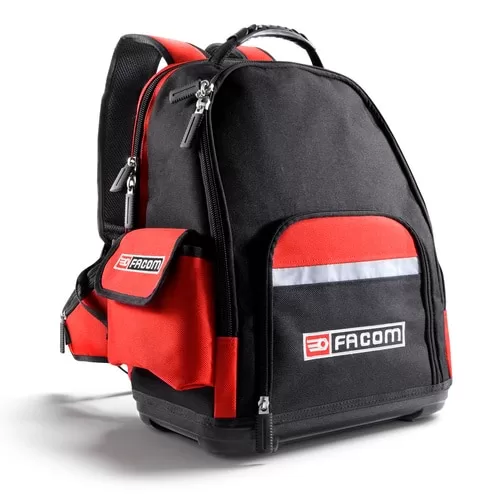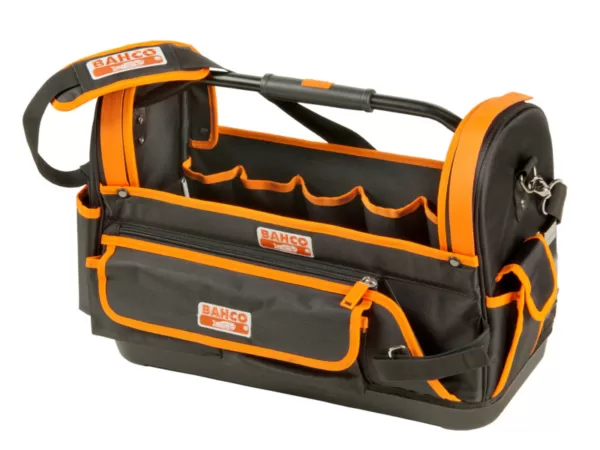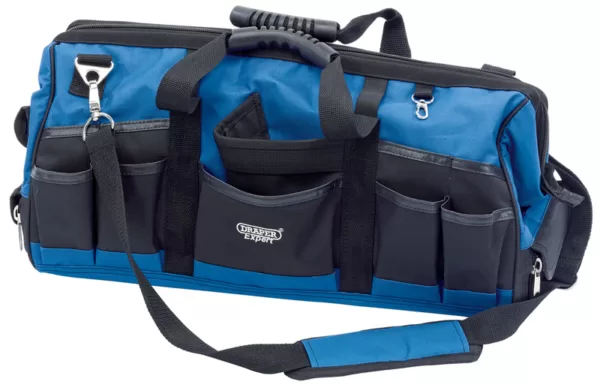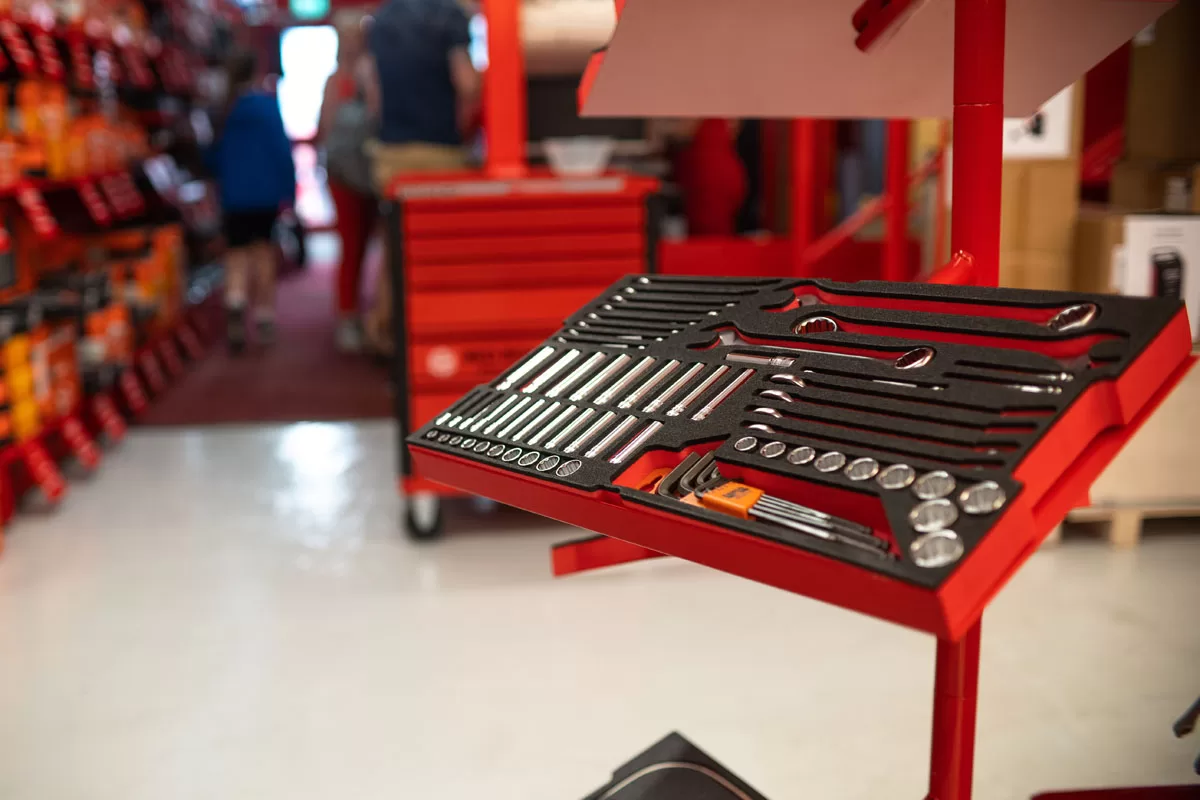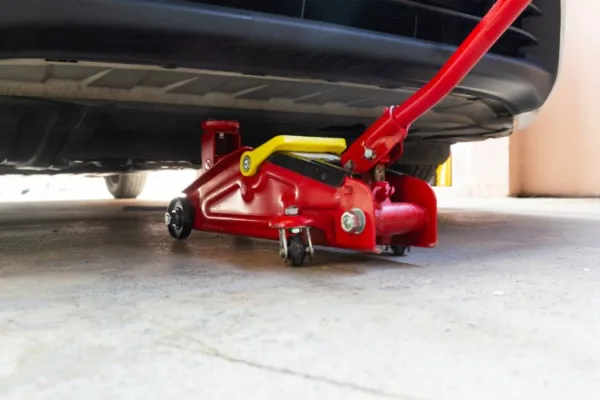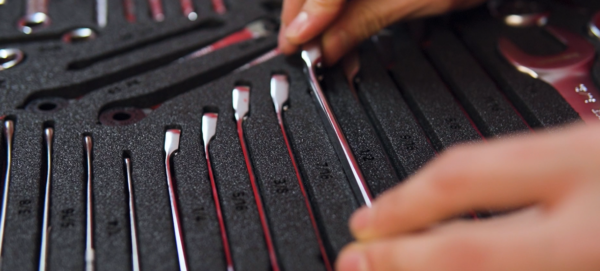The best tool bags help to protect your tools from damage and make it easy for you to find the tool you need.
Tool bags come in many types, some more suited to DIYers than professionals. You’ll also find tool bags for specific trades, such as plumbers tool bags, tool bags for mechanics, and tool bags for HVAC, all of which can influence the type of tool bag you choose.
To help you reach the right decision, our tool bag experts have pulled together this handy guide, explaining the different types of tool bags and their main uses. We’ll also briefly touch on toolboxes, an alternative type of tool storage that you may also wish to consider.
How to Choose the Right Tool Bag
Key factors to consider when choosing a tool bag:
1. Durability & Material
Tool bags are manufactured in a range of materials, the most common of which are polyester, nylon, leather, polypropylene and canvas. How durable your tool bag is boils down to the material it’s made of. If you need to transport a lot of tools, or tools that are especially large or heavy, you’ll be best off looking at heavy duty tools bags.
The other consideration with material is moisture resistance. It’s important to keep your tools clean and dry to protect them from rust – something that’s not always easy when you’re moving between jobs or placing your tool bag on the ground. Choosing a tool bag in a fast-drying or moisture resistant material can help you to keep your tools dry and minimise corrosion.
2. Size & Capacity
Size and capacity are two of the most important factors when choosing a tool bag. You need your tool bag to be big enough to hold all of the tools you need (with room to expand your collection in future) but you also don’t want it so big that it becomes difficult to carry.
A tool bag with a capacity of around 14-16 inches is normally sufficient for most DIYers. Professionals should be looking for a little more capacity. Somewhere around 14-24 inches is normally enough for most trades, although if you use larger tools you should stick to bags with a capacity of 20+ inches.
2. Compartments
Organisation is key with tool bags and there’s where compartments come in handy. The best tool bags have a range of internal and external pockets in a variety of sizes. The more pockets your tool bag has, the easier it is to separate and organise your tools.
One thing you want to avoid is having your tools loosely stored in the bag, where they’re free to move around and rub against each other. This is a sure-fire way to damage your tools, although tool rolls can help to remedy this. External pockets can also make your most used tools easier to access, making your life a lot easier.
3. Comfort & Portability
Although not so important for at-home DIYers, comfort and portability are key for professionals who take their tools on the road. Tool bags with wide padded straps are much more comfortable to carry as they don’t cut into your shoulders so much. You may also want to consider a tool bag that has handles, in addition to a strap, particularly if your tool bag is heavily loaded.
Tool backpacks, which allow you to distribute the weight of your tools over both shoulders, can offer a more comfortable solution than traditional tote bags for tools. Tool belts, which sit around your waist, are also useful for storing smaller and lighter tools that you use regularly.
4. Closure & Security
The types of fasteners your tool bag is fitted with also has a bearing on its accessibility and security. Tool bags with framed openings can make it easier to reach internal tools, compared to those made of soft fabric – something that’s likely to be of importance to professionals who use their tools daily.
If you opt for a tool bag with zippers or buckles, be sure to go for a hardwearing material, like nylon zippers with pull tags, which are easy to operate with gloved hands.
Find the Best Tool Bag for Your Trade
If you work as a professional tradesperson, you may find it more beneficial to choose a tool bag that’s designed specifically for your industry. Tool bags for professionals are often more durable than tool bags for general DIYers, and put a greater emphasis on portability, accessibility, and keeping your tools safe.
Electrician’s Tool Backpacks
The best electricians tool bags are durable, spacious, and comfortable, whilst offering adequate compartments and pockets for you to keep all your tools safely stored, yet easily accessible.

Carpenter’s Tools Belts
Although carpenters may require a tool bag to get their tools from A to B, on the job many carpenters choose to store their tools in a tool belt, giving them access to a range of lightweight essential tools, without having to continually bend down.
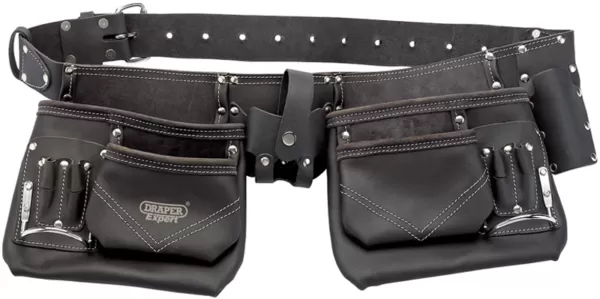
Tool Bags for HVAC
Heating and air conditioning professionals need a tool bag that can hold its own in a tough environment, but that also offers lots of differently sized storage pockets to accommodate the variety of tools that this job requires.
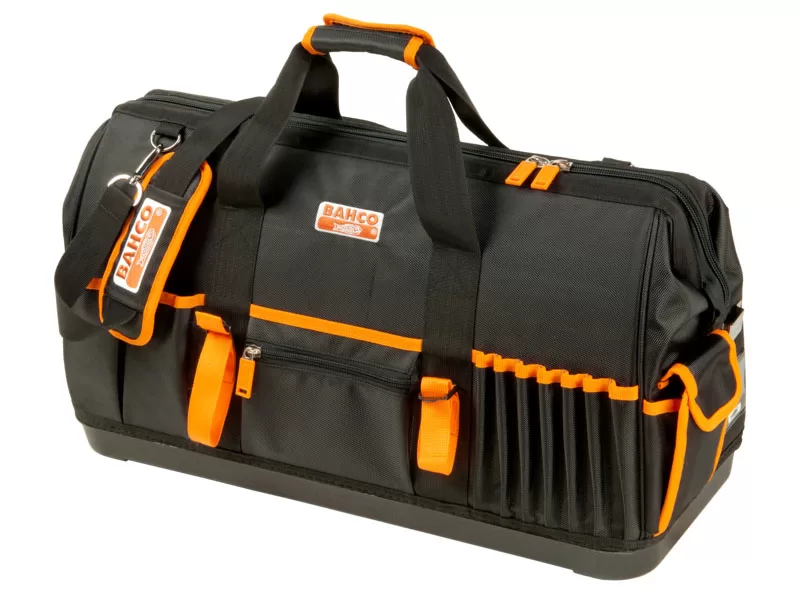
Metal Tool Boxes for Mechanics
Mechanics typically work out of a garage or workshop, so portability is less of a priority for this trade. Tool boxes for mechanics tend to focus more on moisture-resistance and capacity, especially as many mechanics will place their tool boxes directly onto surfaces which could contain grease and oil.
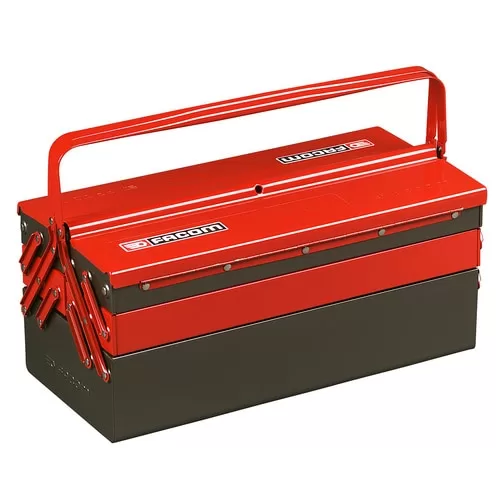
Various Types of Tool Storage
Tool bags aren’t the only option you have when it comes to keeping your tools organised. If portability is less important to you, or you have a larger than average amount of tools to store, you may find a tool chest, tool case, or a toolbox, better suited to your needs.
Tool Chests
Tool chests resemble a cabinet or a chest of drawers. They are freestanding and sometimes fitted with wheels to allow them to be moved.
Larger tool chests sometimes feature a worktop surface. All makes and models will be fitted with multiple drawers, usually in different sizes to accommodate varying tool types.
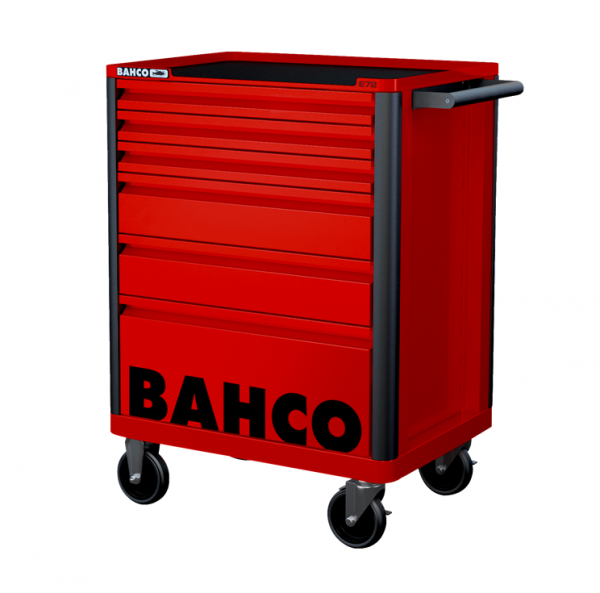
Tool Cases
Tool cases come in two varieties: tool cases on wheels and rigid tool cases.
Tool cases on wheels often have the appearance of a hard-backed suitcase, down to the retractable pulley handle, allowing you to easily move your tools between locations.
Rigid tool cases have more of an industrial look and feel but are equally heavy duty.
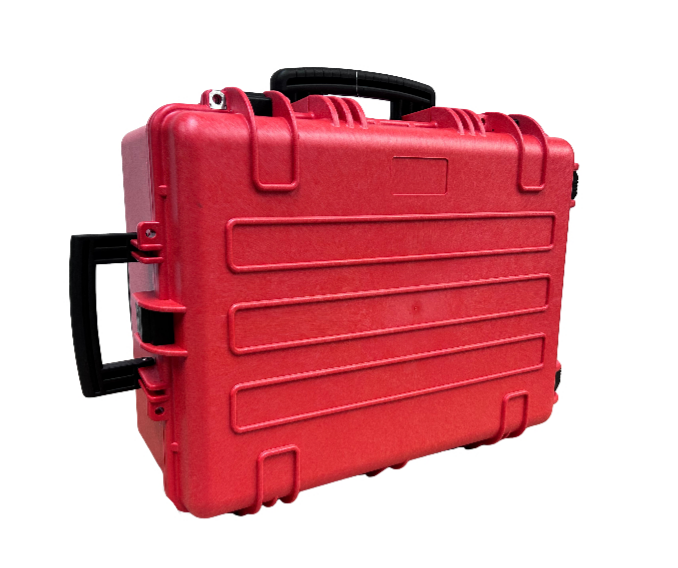
Tool Boxes
Tool boxes are one of the most popular types of tool storage for DIYers. They come in two main varieties, one of which are cantilever tool boxes, recognisable by their connected layered trays that fan out when opened and stack on top of one another when stored. Tool boxes typically feature intricate compartments for holding screws, nuts, and bolts, and a deeper cavity where hand tools are held.
You’ll find tool boxes in both metal (typically steel) and plastic. Metal tool boxes are sturdier than their plastic counterparts, but weigh more and are also subject to rust if not well maintained. Plastic tool boxes, on the other hand, are much lighter in weight. They transport well, can be cleaned easily, and can also include transparent components, making tools and fasteners easier to find.
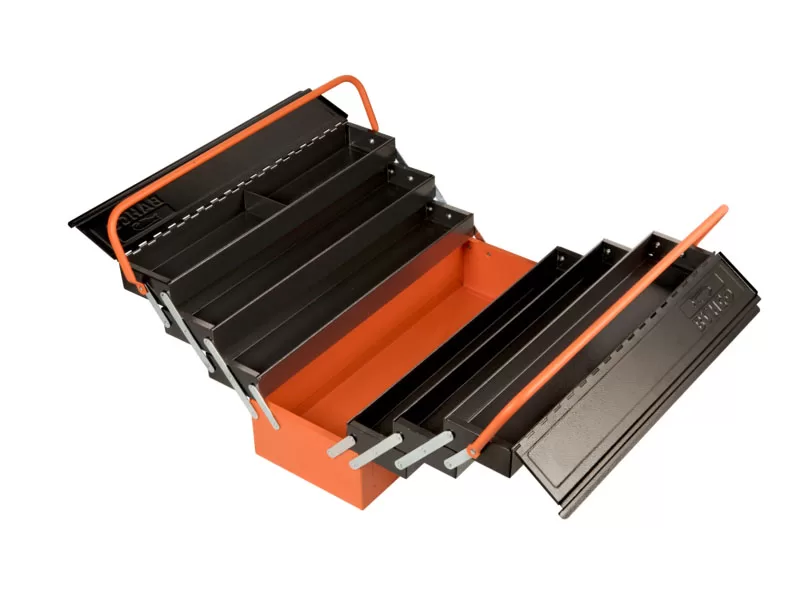
Tool Bags
Tool bags also come in a wide variety of makes, models, and styles. From tool backpacks and tool belts (which sit around your waist) to tote tools bags, which feature a solid central handle that helps them retain their shape, tool bags are a great solution for professionals and DIYers.
Another type of tool bag, or tool bag accessory, is the tool roll. A type of fabric tool storage that extends flat for tool removal and then rolls up neatly for tool storage.
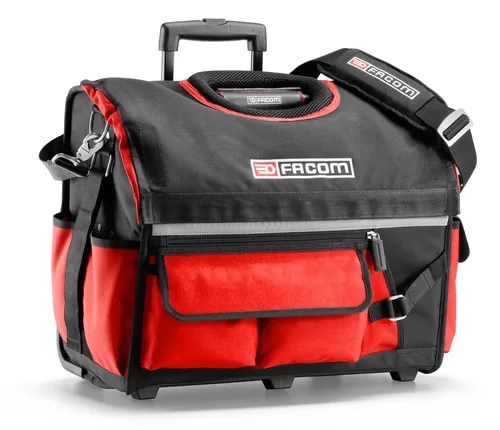
Tool Bag or Tool Box?
When it comes to tool bags vs tool boxes, it’s important to consider the pros and cons in respect of what you need your tool storage to do.
If you’re someone who’s always on the move with your tools, for example a professional plumber, electrician, or HVAC engineer, you may find the durability and portability of a tool bag more beneficial. If you’re a working mechanic, however, a tool chest or case, which offers a greater capacity for tool storage, might suit you more, providing you have the space to accommodate one.
For DIYers, portable tool boxes usually provide adequate storage for all the tools you need, and can be easily housed out of sight in a cupboard. However, a tool bag can just as easily do the job and will also give you greater flexibility when it comes to adding to your tool collection in future.
Ready to get organised?
Find your perfect tool storage from our professional range
From tool bags and tool chests to tool boxes with wheels, tool belts, tool cases, and trade-specific tool storage, at Red Box Tools we offer high-quality solutions you can count on.
Or why not take your tool storage to the next level with our made-to-order tool box foam drawer inserts and custom shadow foaming?
Tool Bag FAQ
1. Can I use a professional tool bag for DIY projects?
Absolutely! Professional tool bags are built tough and have plenty of room, so they can definitely work for DIYers
2. How do I organize tools efficiently in a tool bag?
Group similar tools, use pockets and pouches, and arrange larger tools at the bottom. Consider bags with adjustable dividers for customisation.
3. Any maintenance tips for keeping my tool bag in good shape?
Clean it regularly, avoid overloading, repair wear and tear promptly, and store it in a dry place. Use a waterproof cover if working in wet conditions.



